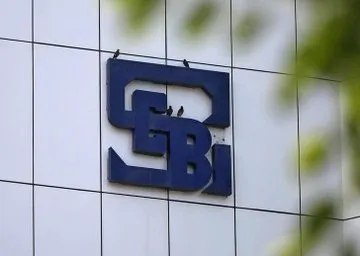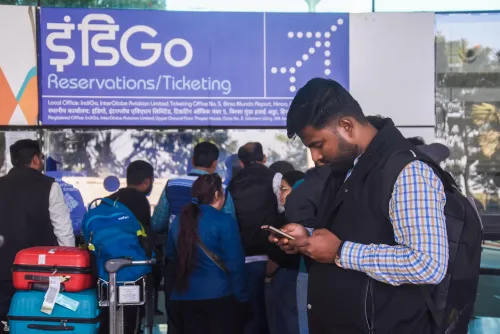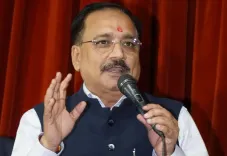What Are the New SEBI Cooling-Off Rules for Directors at Competing Institutions?

Synopsis
Key Takeaways
- SEBI has introduced cooling-off periods for directors moving to competing MIIs.
- Non-independent directors must complete this period before joining rival institutions.
- Public interest directors can serve an additional term with approval after their tenure.
- These changes aim to bolster governance and prevent conflicts of interest.
- Regulations have been amended to enforce these new rules.
New Delhi, May 5 (NationPress) The Securities and Exchange Board of India (SEBI) has implemented more stringent regulations to enhance governance at essential market infrastructure institutions (MIIs) such as stock exchanges, clearing corporations, and depositories.
To avert conflicts of interest and maintain market integrity, the SEBI has mandated that select directors must adhere to a cooling-off period before moving to a rival institution.
"Provided that the non-independent director on the governing board of the depository may be appointed in a recognised stock exchange or a recognised clearing corporation or another depository with the prior approval of the Board, only after a cooling-off period as may be specified by the governing board of such depository," it mentioned.
The market regulator has updated the Securities Contracts (Regulation) (Stock Exchanges and Clearing Corporations) Regulations, 2018, along with the Depositories and Participants Regulations, 2018, to enforce these changes.
According to the new framework, a non-independent director who has served on the board of a recognized stock exchange or clearing corporation can only join the board of another competing entity—like a different exchange, clearing house, or depository—after satisfying two essential conditions.
These requirements include completing a cooling-off period, the length of which will be determined by the governing board of the relevant institution, and obtaining prior approval from the SEBI.
The SEBI has also noted that a public interest director, upon finishing their term at a market infrastructure institution, can be appointed to another similar institution for an additional three-year term, but only with its consent.
The cooling-off stipulation will specifically apply when an individual is being appointed as a public interest director at a competing institution.
These recent measures aim to ensure enhanced oversight and ethical standards at institutions that are crucial for the efficient operation of India’s financial markets.
The SEBI stated that these amendments are part of its continuous efforts to fortify the governance framework of MIIs and to mitigate potential conflicts that could arise from the transition of directors between rival entities.
This decision comes in light of a board-level review conducted by the SEBI in March, which scrutinized the appointment process for critical officials at stock exchanges and related market entities.
The establishment of a defined cooling-off period was highlighted as one of the primary recommendations from that review.










